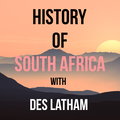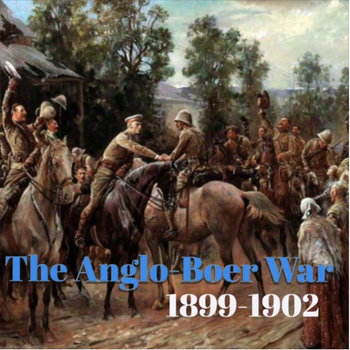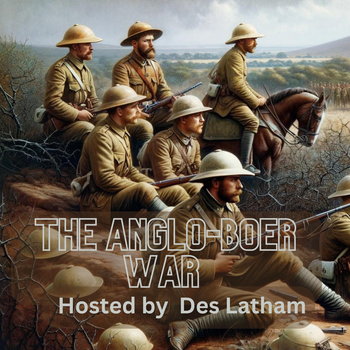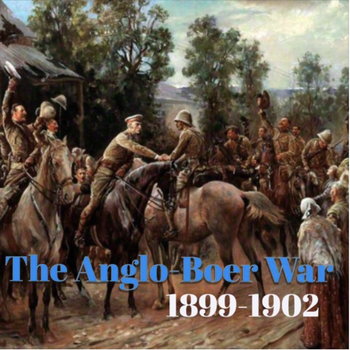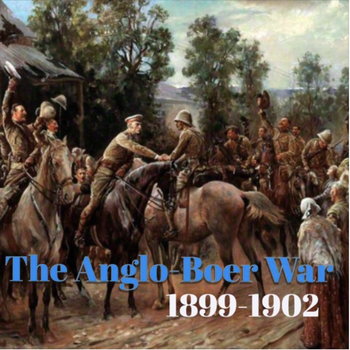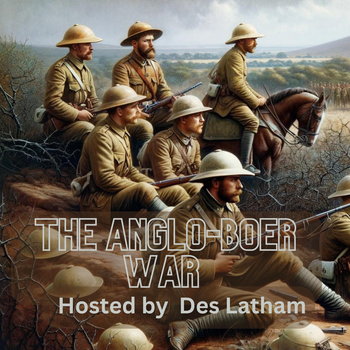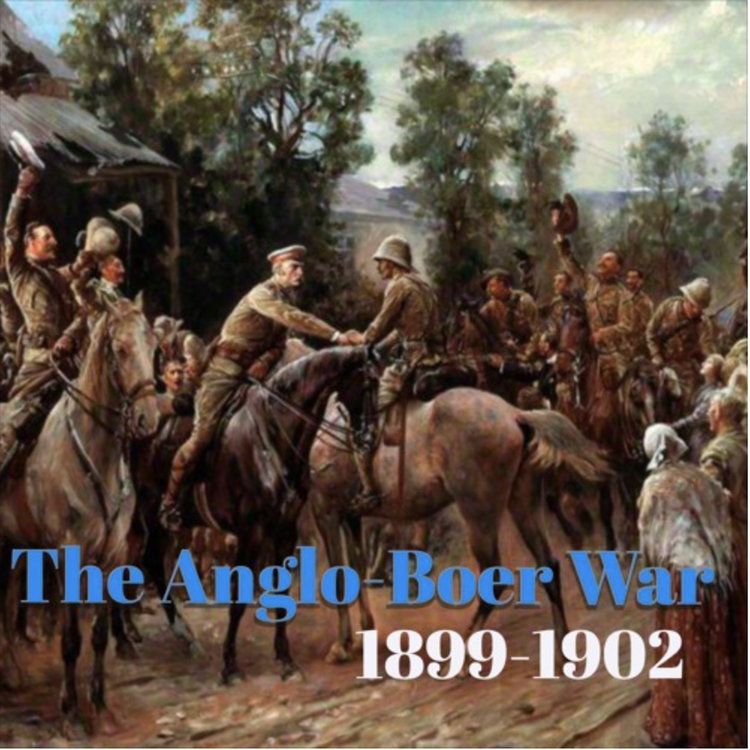
Episode 42 - Beautiful scenery please pass the ammunition
Loading player...
It’s early July 1900 and we’re into the phase of this conflict that is characterised by small Boer forces roaming the veld, hiding out and then striking weak points in the British line.
And in a country the size of South Africa, many weak points are to be found. The Transvaal government had relocated to the eastern town of Machadadorp which overlooks the escarpment down to the coast, what is known as the lowveld of the country.
It’s beautiful - but also trecherous. The canyons and gorges are heavily wooded and steep, an entire army could hide out in these thick overgrown and deep valleys, and they did.
Long rows of railway carriages constituted the new headquarters of the Transvaal government and its entourage of civil servants who had come from Pretoria.
Boer commando Deneys Reitz and his brothers had made their way to Machadadorp after the Battle of Diamond Hill or Donkerhoek as its also known. They had ridden east for three days before finally finding a berth on a cargo train in Middelburg, but had to leave their horses behind.
They reached Machadadorp early in the morning and found their father in one of the carriages. He was the Transvaal Secretary, EW Reitz, who worked alongside Oom Paul Kruger the president. One of Deney’s brothers, Arend, was in a Russian Field Hospital in Waterval Onder, which means Under Waterfall to translate correctly, in the lower slopes of the escarpment.
Reitz senior welcomed his sons, then told them to seek comfort from the fact that the war was not over - he said look at George Washington -“ He too had fought for a seemingly lost cause but triumphed in the end”.
The healthy Reitz brothers returned to the high plains heading west back to Middelberg where they collected their horses and joined a contingent of German volunteers, about 60 strong, led by an Austrian called Baron von Goldeck. This small unit was on reconnaisance for General Louis Botha who as we heard last week, who had gathered a force of 5000 together to continue the war against the British in the East of the country.
The important fact to note here was that these 5000 were what Botha called Good Fighting Men, unlike a large number of burghers who had been half-heartedly defending their country against the British at times.
But these Good Fighting men were not alone. In the West, the Orange Free State, like-minded boer Generals were at work. One was Christian de Wet, who’d been busy as we’ve heard.
On the 8th July 1900, British Commander Lieutenant General Sir Archibald Hunters’ two thousand strong column plodded into Bethlehem in the East of the Orange River Colony as it was now called, close to the Basutoland Frontier - or modern day Lesotho.
Hunter was moving with a few hundred Rimington’s Tigers, the English speaking colonial fighters, and the Black Watch, the Seaforth unit, and the Highland Light Infantry. They were veterans now, as were the Highland Yeomanry and the Lovat Scouts.
And as they approached the town named after the birthplace of Jesus, their prayers were answered. It had taken weeks of marching through undulating veld, and the descriptions are very much like the Germans and French description of marching towards Moscow through the steppes. Week after week of unrelenting flatland which eventually played on the soldiers’ minds.
And in a country the size of South Africa, many weak points are to be found. The Transvaal government had relocated to the eastern town of Machadadorp which overlooks the escarpment down to the coast, what is known as the lowveld of the country.
It’s beautiful - but also trecherous. The canyons and gorges are heavily wooded and steep, an entire army could hide out in these thick overgrown and deep valleys, and they did.
Long rows of railway carriages constituted the new headquarters of the Transvaal government and its entourage of civil servants who had come from Pretoria.
Boer commando Deneys Reitz and his brothers had made their way to Machadadorp after the Battle of Diamond Hill or Donkerhoek as its also known. They had ridden east for three days before finally finding a berth on a cargo train in Middelburg, but had to leave their horses behind.
They reached Machadadorp early in the morning and found their father in one of the carriages. He was the Transvaal Secretary, EW Reitz, who worked alongside Oom Paul Kruger the president. One of Deney’s brothers, Arend, was in a Russian Field Hospital in Waterval Onder, which means Under Waterfall to translate correctly, in the lower slopes of the escarpment.
Reitz senior welcomed his sons, then told them to seek comfort from the fact that the war was not over - he said look at George Washington -“ He too had fought for a seemingly lost cause but triumphed in the end”.
The healthy Reitz brothers returned to the high plains heading west back to Middelberg where they collected their horses and joined a contingent of German volunteers, about 60 strong, led by an Austrian called Baron von Goldeck. This small unit was on reconnaisance for General Louis Botha who as we heard last week, who had gathered a force of 5000 together to continue the war against the British in the East of the country.
The important fact to note here was that these 5000 were what Botha called Good Fighting Men, unlike a large number of burghers who had been half-heartedly defending their country against the British at times.
But these Good Fighting men were not alone. In the West, the Orange Free State, like-minded boer Generals were at work. One was Christian de Wet, who’d been busy as we’ve heard.
On the 8th July 1900, British Commander Lieutenant General Sir Archibald Hunters’ two thousand strong column plodded into Bethlehem in the East of the Orange River Colony as it was now called, close to the Basutoland Frontier - or modern day Lesotho.
Hunter was moving with a few hundred Rimington’s Tigers, the English speaking colonial fighters, and the Black Watch, the Seaforth unit, and the Highland Light Infantry. They were veterans now, as were the Highland Yeomanry and the Lovat Scouts.
And as they approached the town named after the birthplace of Jesus, their prayers were answered. It had taken weeks of marching through undulating veld, and the descriptions are very much like the Germans and French description of marching towards Moscow through the steppes. Week after week of unrelenting flatland which eventually played on the soldiers’ minds.
